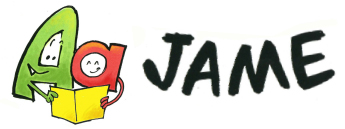Diversity and plurilingualism
Over the years, JAME has developed an approach to intervention in a multilingual environment, based on recent innovative research practices.
In fact, numerous studies show that we can promote the learning of French among allophones, i.e. people who speak languages other than French, by building on their linguistic baggage, as long as we do not consider it as an obstacle to integration and living together but rather as a richness, an opportunity to be seized in order to create a society that is more inclusive and more open to the world.
Indeed, when an individual's cultural and linguistic background is legitimised and valued, when the climate is warm and conducive to learning, he or she feels more confident in making progress in learning French.
From this point of view, while it is important to encourage the learning of French by an allophone child, it is also essential to value his or her cultural identity and in particular his or her mother tongue. It is an integral part of their personality, of what defines them as human beings, and refers to their family origins.
In addition to enhancing the linguistic baggage of individuals, the language awareness approach leads children, whether allophone or francophone, to open up to others, to take a step back from their language, to become aware of its particularities, to make links between one and the other and, a fortiori, to better understand the structures inherent in the French language. Several initiatives based on these convictions exist throughout the world, including the international network EDILIC (Education and Linguistic and Cultural Diversity), the French association DULALA D'Une Langue A L'Autre). In Quebec, we are fortunate to be able to count on the research team of the University of Montreal ELODIL (Eveil au Langage et Ouverture à la Diversité Linguistique), directed by Mrs. Françoise Armand.
At JAME, we are fully committed to these approaches and over the years we have developed various means of intervention to promote them. You will find below more details about our training courses for practitioners (Bilingual children and plurilingual environments: winning practices for successful integration), workshops for parents(my child's bilingualism) and our pedagogical tools (reading and writing awareness kits on cultural and linguistic diversity, intercultural bibliography and story bags for allophone parents)
